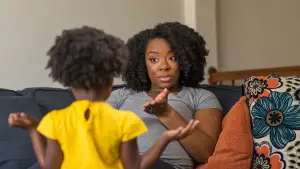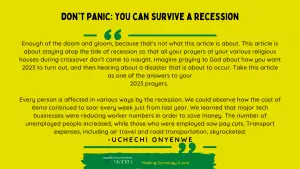Rape in Nigeria is legally defined as unlawful sexual intercourse with a person without their consent, often involving force, threat, or manipulation.
The Violence Against Persons (Prohibition) Act (VAPP) expands on this by recognizing different forms of penetration and lack of consent, no matter the relationship between the parties.
Beyond the legal definition, many communities still see rape through a narrow lens. They believe it only happens between strangers, in dark corners, and often blame the victim for “inviting” it.
This gap between the law and societal understanding fuels a culture of silence and injustice.
Globally, rape and sexual violence remain widespread.
According to the World Health Organization, 1 in 3 women worldwide has experienced physical or sexual violence in their lifetime
Countries like India, South Africa, and parts of the United States report high numbers of rape cases, and like Nigeria, they also struggle with cultural beliefs that protect perpetrators and silence victims. In many of these places, victims are blamed for what they wore, where they were, or who they trusted, making it harder to seek justice or healing.
In Nigeria, The Issue Runs Deep
Statistics from the 2018 Nigeria Demographic and Health Survey (NDHS) reveal that 1 in 4 girls experience sexual violence before turning 18. Many of these cases go unreported, and those who speak up are often shamed, dismissed, or forced into silence.
Rape is not merely a personal tragedy, it’s a social problem that reflects the values, fears, and failures of the wider society.
Victim-shaming and denial are two major reasons why rape continues to thrive in Nigeria.
Instead of supporting survivors, many people question their choices, judge their actions, or outright deny their stories. This causes double harm. First by the perpetrator, then by society. The situation discourages victims from coming forward and allows abusers to walk free.
To tackle rape effectively, we must not only understand the crime but also confront the attitudes that protect it.

Legal and Cultural Understanding of Rape in Nigeria
Legally, rape in Nigeria is defined as non-consensual sexual intercourse, traditionally limited to vaginal penetration, but expanded under the Violence Against Persons Prohibition (VAPP) Act to include other forms of sexual violation.
However, the law’s reach is limited by state-level adoption and widespread cultural misunderstanding. In many communities, the legal meaning of rape is not aligned with how people interpret it socially, making room for harmful practices to go unchecked.
One key area of cultural denial is spousal rape, which is still not widely acknowledged in Nigeria, especially in Northern communities shaped by conservative religious and patriarchal values.
Marriage is seen as automatic consent, and wives are often expected to comply with their husbands’ desires, even when forced or degraded. This culture pushes women to as far as being pressured into anal sex.
Despite the VAPP Act criminalizing spousal rape, many women suffer in silence, fearing shame or disbelief. Men, in turn, exploit marriage as a cover for abuse, reinforcing power imbalances within the home.
Statutory rape is another area clouded by cultural contradiction. Though the legal age of consent is 18, marrying off 14-year-old girls is religiously and culturally acceptable in some regions, where girls are expected to fulfill sexual duties from day one.
There are cases of rape, often by unsympathetic husbands. Culturally, they are treated as normal. This blurring of lines makes legal enforcement difficult and keeps young girls vulnerable to lifelong trauma including vaginal injuries and worse.
When it comes to acquaintance rape, many victims face blame rather than support. A girl raped by a friend or boyfriend might be told she was “asking for it” because she went to his house in the evening. In such cases, societal expectations silence victims more than the law does.
Coercive rape is where someone gives in to pressure or manipulation, is even less understood. A boyfriend pretending to be ill just to lure a girl over, then forcing himself on her, is often excused or minimized. Emotional blackmail or subtle threats are rarely seen as violations, especially when the abuser is in a relationship with the victim.
Other forms of rape such as gang rape, drug-facilitated rape, and rape by authority figures exist in both rural and urban Nigeria.
Though the law recognizes these as criminal, cultural responses vary. Victims may be disbelieved, shamed, or warned not to “destroy” a powerful man’s reputation. For example a pastor, an Imam or a boss at work. These reactions reflect a societal reluctance to confront abuse, especially when committed by those in respected roles.
Ultimately, while Nigeria’s laws define and prohibit rape in several forms, enforcement is hindered by deeply rooted social and religious norms that blur the lines between consent and obligation.
These cultural barriers not only silence victims but protect abusers, allowing rape to persist behind closed doors.
Effects of Victim Shaming and Rape Denial
In Nigeria, rape survivors often suffer twice. First from the assault, and then from how society treats them. Victim shaming involves blaming survivors for the rape, questioning their dressing, behavior, or decisions, as though they brought it upon themselves.
Denial culture, on the other hand, dismisses the possibility of rape entirely, especially when the accused is someone powerful or respected. Instead of sympathy, survivors are often met with suspicion or silence.
For instance, a university student who visits her sick boyfriend may be blamed for “putting herself in harm’s way” if she’s assaulted. A wife forced into degrading sex acts might be told to “submit,” as though marriage is a license for abuse.
In many conservative communities, especially in Northern Nigeria, topics like spousal or marital rape are not recognized culturally or religiously, even when clear boundaries are crossed. Cultural and religious beliefs are used to defend harmful actions and suppress accountability.
The effects of this culture are serious. Survivors become too afraid to speak out, leading to over 77% of rape cases going unreported in Nigeria. Shame, fear of judgment, and family pressure keep women silent.
Sadly, this silence empowers perpetrators. In fact, data from centers like Mirabel in Lagos show that most rapists are repeat offenders, especially when they are not held accountable. In universities, workplaces, and homes, the same names come up again and again, but nothing is done.
This lack of justice affects more than just individuals. Survivors may drop out of school, develop depression or PTSD, or even take their lives. Communities lose trust in legal systems. And as less than 4% of survivors receive counseling, the trauma remains buried and unresolved.
Socially, the effects are dangerous. Families may cover up rape to avoid stigma. Religious leaders may urge victims to “forgive and forget” rather than seek justice. Community denial becomes part of the cycle by encouraging silence, enabling abusers, and weakening the overall fight against sexual violence.
This denial even distorts data. Only about 3.3% of cases are officially reported, and less than 1% lead to conviction, giving the impression that rape is rare or under control, when in truth it is simply hidden.
Yet there are signs of hope. Activist movements like #ArewaMeToo and #JusticeForUwa have sparked difficult conversations and empowered survivors to speak up. Apps like SmartRR now allow women to report safely and anonymously. Organizations like WARIF and Mirabel Centre offer medical, legal, and emotional support, and train authorities to treat survivors with dignity.
These efforts are slowly making a difference as reporting rates are rising, and victim-blaming attitudes are beginning to fall in some urban areas.
But lasting change requires more than tools and awareness. It needs a cultural shift. The cycle of silence must be broken, and that starts with believing survivors, prosecuting offenders, and refusing to shame victims for the violence done to them.
Conclusion
Rape is not just a crime. It’s a pain that lives inside people long after the act is over. But what makes it worse in Nigeria is how survivors are treated, like they are the ones who did something wrong. Instead of getting help, they get blamed. Instead of being heard, they are told to keep quiet.
This culture of silence and denial is dangerous. It lets abusers keep doing harm while survivors suffer alone. It hides the truth and makes people afraid to speak up. And when society keeps pretending that rape doesn’t happen or that it’s the victim’s fault, more people get hurt and nothing changes.
If we want to stop rape, we need to change how we think and how we talk. We need to support people who come forward. We need to stop blaming them and start believing them.
The law must work better, but so must our hearts. Everyone has a part to play, families, friends, religious leaders, schools, and communities.
We must break the silence, face the truth, and choose to protect people instead of protecting shame. .







